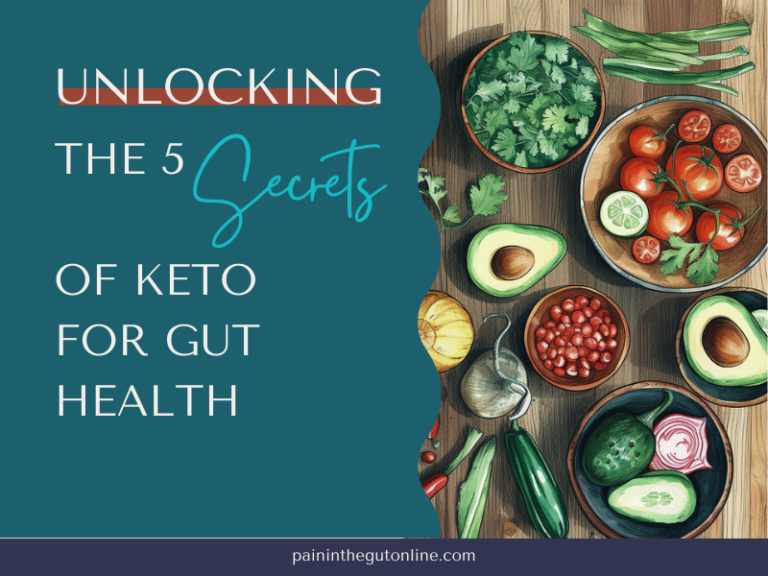IMPROVE YOUR DIGESTION
6 min read/ 1231 words
Are you fed up with gas, bloating, stomach cramping, and diarrhea? Do you often feel overfull and sluggish after eating? I feel your pain, and I’m here to help. Eating doesn’t have to take its toll on your digestion. With these three easy steps, you can improve your digestion and feel satisfied after a meal instead of lethargic and ill.

Table of Contents
What is Indigestion Exactly?
The term indigestion refers to the symptoms you experience after eating food. These symptoms can occur during, shortly after, or in the hours following a meal.
Tell me if this sounds familiar.
You’re at work, pressed for time because you’ve been so busy today that you can only manage a quick bite before getting back to the task at hand. You didn’t pack a lunch because you forgot to go grocery shopping last night, so you grab a bag of chips, a granola bar(that’s healthy, right?), and a soda out of the vending machine in the break room.
You scarf down the granola bar in three bites, chug some soda to wash it down, and shovel handfuls of chips into your mouth. Then, looking at the clock, you realize you took five minutes too long, so you rush back to work.
30 minutes later, you begin burping and feeling some grumbling in your tummy. You tell yourself you probably didn’t eat enough and maybe you should have skipped the soda. Within an hour, you’re exhausted and need a nap.
You end up working late and running through a drive-thru on the way home to grab some burgers and fries for the family since you don’t have food at home and don’t have the time to cook it. You’re so hungry that you start eating fries while you’re driving home.
Halfway through your meal, you feel bloated and a little sick to your stomach. After dinner, you keep burping and have terrible heartburn. You spend the rest of your evening feeling awful and go to bed early because you’re so tired.
In the morning, you realize you still haven’t got any food in the house, and the pattern repeats itself.
What do you think is going on here?
It’s indigestion.
Gas, cramping, bloating, diarrhea, nausea, acid reflux or heartburn, headaches, and fatigue are all symptoms of indigestion.
But what can be done about it? I mean, we all have busy lives, and sometimes, you just have to eat what you can get ahold of quickly, right?
Wrong.
Indigestion doesn’t have to mean daily suffering; with these three steps and a little planning, you can improve your digestion.
3 Easy Steps You Can Take to Improve Your Digestion
So, what can be done to improve these symptoms? The answer is two-fold. Let’s talk about the first one, well…first.
- Small portions
- Eat slowly
- Avoid cold drinks
Small portions. Make it a habit to start each meal with small portions. How often have you taken too much food and just kept eating after feeling satisfied because you didn’t want to waste it? Guess what? You can always go back for more if you need to.
Eat slowly. This is the best thing you can do for your digestion. Your mouth is the first step in the digestive process. In our busy day-to-day lives, we tend to eat quickly and not chew our foods properly. This can lead to indigestion and slow digestion. Take your time when eating, chew, eat, bite well(I’m not saying chew 50 times, more like 15-25), pause after every few bites for a minute or two to check to see if you feel satiated. This can speed up digestion and prevent you from overeating.
Avoid cold drinks. A misconception floating around says you shouldn’t drink fluids while eating. That’s not true. But you should avoid drinking anything cooler than room temperature(as long as your room isn’t really cold). The best practice is to warm your drinks up to at least 100°F when accompanying a meal. Cold drinks constrict your blood vessels, slow digestion, and impede hydration. Do your body a favor and warm those drinks up.
What else can be done to Improve Digestion?
Now, let’s discuss the second thing you can do to improve your digestion in the long run.
Of course, I’m talking about improving your overall gut health. In the example above, you’ll notice that the person is not only eating too quickly and having cold beverages with food. The problem goes way beyond that.
To improve your digestion, you also need to have a happy and healthy gut. Your gut affects many areas of your body and can really make your life miserable when it’s unhealthy. From your heart to your immune system, your gut plays a vital role throughout your body.
In order to keep your gut healthy, you need to pay attention to 3 things:
- Your diet
- The amount and frequency of movement you get
- The stress in your life
If you’re in the habit of running through the drive-thru or grabbing lunch from a vending machine, your gut will soon start to revolt. Maybe it already is.
Your diet must include fresh vegetables and fruits, whole grains, and healthy fats. Refined sugars and flours should be limited or avoided, and red meat should be an occasional indulgence. Eating a well-balanced diet will keep your gut functioning properly and your body healthy.
Movement is important for not only your overall health but also your digestion. Try to find something you enjoy doing daily so you will be more likely to stick with it. Try a walk around the neighborhood after dinner, 10 minutes of stretching after a meal, yoga, swimming, or riding a bike, and keep it consistent. Your body will thank you.
Stress leads to many problems with your body, so it’s no surprise it affects your digestion, too. Stress can cause you to lose appetite for days on end and slow your digestion, especially if you’re not eating regularly. Over time, stress can cause constipation, diarrhea, and more.
Let’s Summarize
Indigestion goes beyond gas, cramping, and diarrhea. It can be a sign of an unhealthy gut.
But you can improve your digestion and keep your gut healthy.
Starting with small portions, chewing your food well, slowing down mealtime to give your body enough time to tell you when it’s had enough, and avoiding drinking cold beverages during a meal are great ways to speed up your digestion and prevent an upset stomach.
Caring for your gut every day can take things to the next level.
Eating a well-balanced meal that includes fresh vegetables and fruits, whole grains, and healthy fats, moving your body with intention, and reducing stress will help keep your gut and your entire body performing at its best.
When you’re ready to finally take your health into your own hands and make yourself a priority, jump into our 7-Day Gut Reset Challenge to set the stage for healing, it’s FREE!
Wanna learn more about gut health? Check out these articles from our blog.
10 Clear Signs Your Gut Needs Attention Now
5 Reasons You Shouldn’t Ignore Indigestion, Ever!






